Newsletter
| Location: | Cape Three Points, Ahanta West, Western Region, Ghana |
| Availability: | September – March |
| Price: | Average $157 per week |
| Duration: |
1 – 28 weeks |





of sea turtles we work to protect
rural communities that we work alongside
Volunteer rating
Join our new sea turtle conversation project and assist in protecting endangered sea turtle species such as the Olive Ridley, Leatherback and Green Turtle. Take part in beach patrols to collect data on nesting sites and sea turtle activity, relocate eggs to specially constructed hatchery to protect the eggs during their at risk period, ensure hatchery is safe and secure to help increase hatching and population targets for these species.
Sea turtles are a key stone species which means they have a crucial influence on their environment and surrounding species. Unfortunately as globally experienced, sea turtle numbers declined due to accidental capture in fishing gear, hunted for their meat and habitat destruction due to climate change and human impact. By assisting in data collection and conservation tasks we aim to play our part in the protection of eggs and hatchlings to protect population numbers as part of the global effort.
Support Staff – Accommodation – House Utility Bills – Pre Departure Support
Support Staff – You will have both pre departure support from our head office team and then in country support at the project sites with you to ensure you have a smooth transition into a new culture and answer any queries you may have.
Accommodation – Living with your fellow volunteers and support team you will have the benefit of a tight knit family feel and always ensuring there is someone to chat to and plan your free time activities. For full information on the accommodation provided please see below in the dedicated part of the listing.
Depending on your team allocation and location assigned you may be a short distance to the beach that requires patrolling on that shift. You have the option to walk, cycle or take a short shared taxi ride depending on the distance.
For the further communities where we run bycatch monitoring to rescue and protect sea turtles caught in fishing nets then this would be in the communities of Akwidaa and Dixcove and can cost approximately $5 for a return trip in a shared taxi.
The core pillars of the conservation project at this time are; Beach Patrols, Hatchery Supervision & Data Collection.
Beach Patrols – Through the night you will be allocated a shift and beach stretch where you will monitor the beach looking for signs of nesting, during this shift you will log your miles and stretch of beach patrolled. Upon finding a nest, depending on location we would aim to transport these safely to the dedicated hatchery to increase their chance of survival and protect them from outside threats. Upon spotting sea turtles you will be responsible for logging the details for ongoing monitoring such as photograph, verifying species, approximate size, location etc.
Hatchery Supervision – When assigned on hatchery duties you will be supervising the location to ensure a safe environment away from any threats such as dogs or birds etc and making any necessary fence repairs or fixes.
Data Collection – Processing the data collected by the beach patrol teams or from your previous night shift, ensuring this is processed in a clear and accurate manner to share with our conservation partners both in Ghana and overseas.
Depending on volunteer team numbers and workload we also aim to run community awareness schemes to highlight the importance of sea turtles and their impact, tagging of adult sea turtles caught by fishermen and ensuring their safe return to the ocean and then providing this tagging information to worldwide organisations to assist in the tracking and monitoring of adult populations and establishing a fishing exchange where fishermen who have caught sea turtles as by catch can turn over the sea turtle to us for a fixed fee or item to prevent it being sold to traders for meat etc.
Depending on the numbers of volunteers at a time we aim to group volunteers into couples or small groups especially at the start of your trip until you complete the training and feel comfortable, however there may be periods of time further down the line where this is not possible due to the amount of beach to be covered during the patrols for example.
Our support team will always be closeby between the project sites or accommodation should you need any further support or assistance when in country.
All we request is the passion and drive to make a difference with us, one step at a time. Being able to get involved and stuck in will help you much more with this project especially with the community cleanup days which can be tiring in the heat and humidity. The greatest traits of a volunteer are enthusiasm, empathetic and the ability to adjust to alternative cultures. You will get the most of our your trip by opening your mind to new experiences and beliefs whilst also bringing your own to the table.
We expect volunteers to visit their placements Monday – Friday, exceptions can be made for long weekends of travel etc.
We will be on hand any time of any day to support you in your placement and trip as a whole. There will always be someone you can speak to or get a hold of should you want to discuss anything or require any guidance, from organising and altering your timetable to changing your placement. Our team living in the volunteer house will also be able to offer advice regarding travel plans and the local area so you will soon feel at home.
In terms of your placement make sure you bring at least one strong pair of shoes and full length trousers/tracksuit. Fundraising for patrol materials such as red torch lights, fishing net lights and hatchery improvements is a great way you can ensure you can hit the ground running as soon as you arrive and make a lasting impact in our communities which we know you will come to love upon arrival.
Breakfast with your fellow volunteers or prepare materials for the day.
(Patrols are rota based with your fellow volunteers)



Volunteers will always share with fellow volunteers on the team as well as their support team supervisor. The utilities you will use are covered part of your fees such as water, cooking gas and electricity.
Depending on your team assignment you will live in shared volunteer housing a small distance away from the beach, it’s supplied with basic kitchen equipment and shared areas such as living room to relax on your off time.
Sometimes it may be necessary to be assigned into camping facilities on the beach due to the distance of the hatcheries and beaches to be patrolled depending on the assignments and times of year. In this case we will aim to provide similar living facilities as the housing however you may need to be willing for an adventure and strip down to basics.
Your stay in our house includes the bills for electricity, gas for cooking and running water.
From application to departure you will receive friendly and helpful advice along the way. Starting from connecting to our management team online once we receive your application you will be met upon arrival to Ghana by our support team who will also live in house with you should you have any questions day or night.
We can arrange for one of our partner vehicles to collect you from the airport and bring you directly to the volunteer house although the transport costs to the local drivers would be covered by yourself. Due to fluctuating fuel prices in Ghana, please get in touch for an up to date price for this.
Our placement as standard is self catering however if you are not too comfortable in the kitchen we can also arrange meal packes on a weekly/monthly basis where our support staff or a local member of the community will prepare 2 meals day for you for an additional charge.
We also have Atlas branded tshirts and clothing available so you can look the part at the placement site. Further details are provided once you are confirmed onto our team and these are available to preorder so we can have it ready for you upon arrival.
You will need to arrange your own flights to Ghana. Takoradi Airport (TKD) is the closest airport to our camp at Cape Three Points however it doesn’t offer international flights. Volunteers will need to fly into the country to Kotoka International Airport (ACC) in Accra. You can then either arrange a domestic flight from Accra to Takoradi to shorten your journey, or our support team can run through collection options from both airports.
You will need to apply for a short term tourist visa through your local Ghanaian embassy. Although this needs to be processed yourself we will be on hand should you have any questions or require supporting documentation to provide for this.
You will require a yellow fever vaccination certificate to gain entry into the country.
For current vaccination and malaria advice you can visit the MASTA site by clicking here.
For travel insurance quotes you can visit the experts at World Nomads by clicking here.
This is a self catering placement so you are provided in the house with a kitchen with basic items to cook at home. You can easily buy fresh ingredients and drinking water from the local market in town. There are also street food sellers and cheap restaurants providing local and western cuisine for when you’ve had a long day.
From $189 per week
Click here to view detailed program fees details
1 week minimum – There is no maximum duration and we would suggest staying as long as possible to achieve the biggest social impact possible.
– Sea turtle nesting season in Ghana is between September to March so the project is only available within these months.
– You are able to arrive any time of day and any flight, our airport collections driver can collect you from Kotoka International Airport in Accra and bring you to the the volunteer accommodation or you can fly to Kotoka International Airport in Accra then get a domestic internal flight to Takoradi Airport where our support team can meet you or arrange an airport collection.
– Ideally we prefer for volunteers to arrive the first week of the month. Between the 1st – 7th each month.
~ Jeremy F / Sea Turtle Conservation Volunteer
The trip was a unique experience for me! My expectations were exceeded by far and I am glad to have found the project. If you don’t mind getting up at night on patrols to find turtles and eggs, this project is great. In addition to working at school, on the farm and collecting and recycling plastic waste on the beach, this project is very versatile and never gets boring. I can only recommend this project!
– Lara S / Sea Turtle Conservation Volunteer
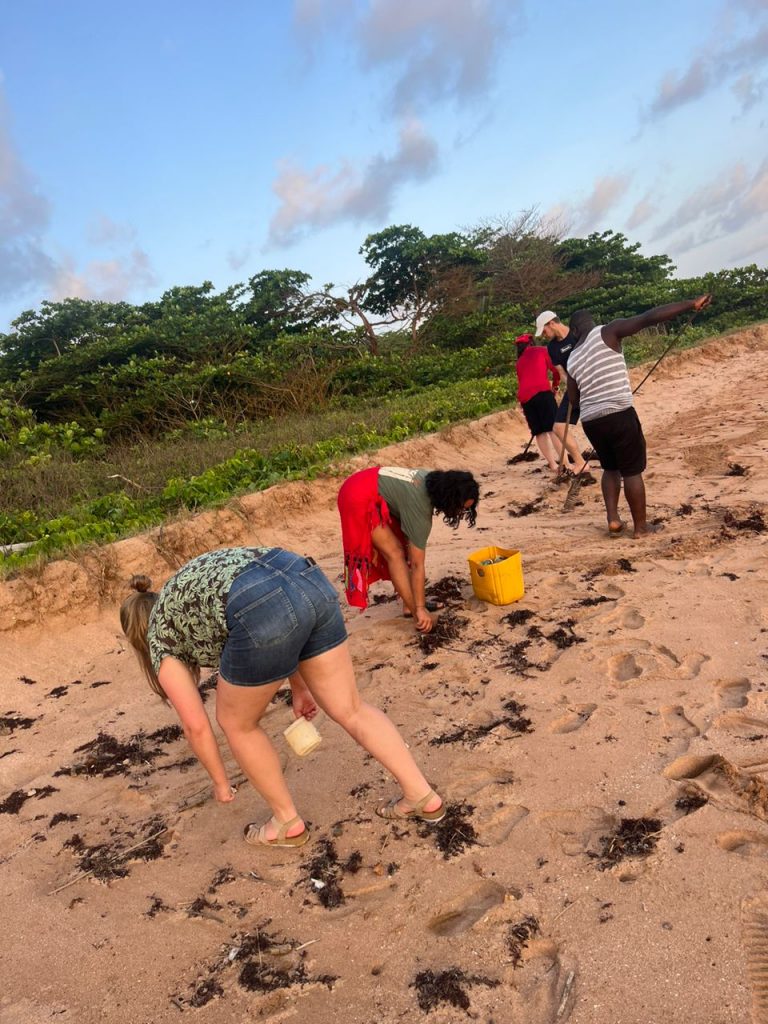
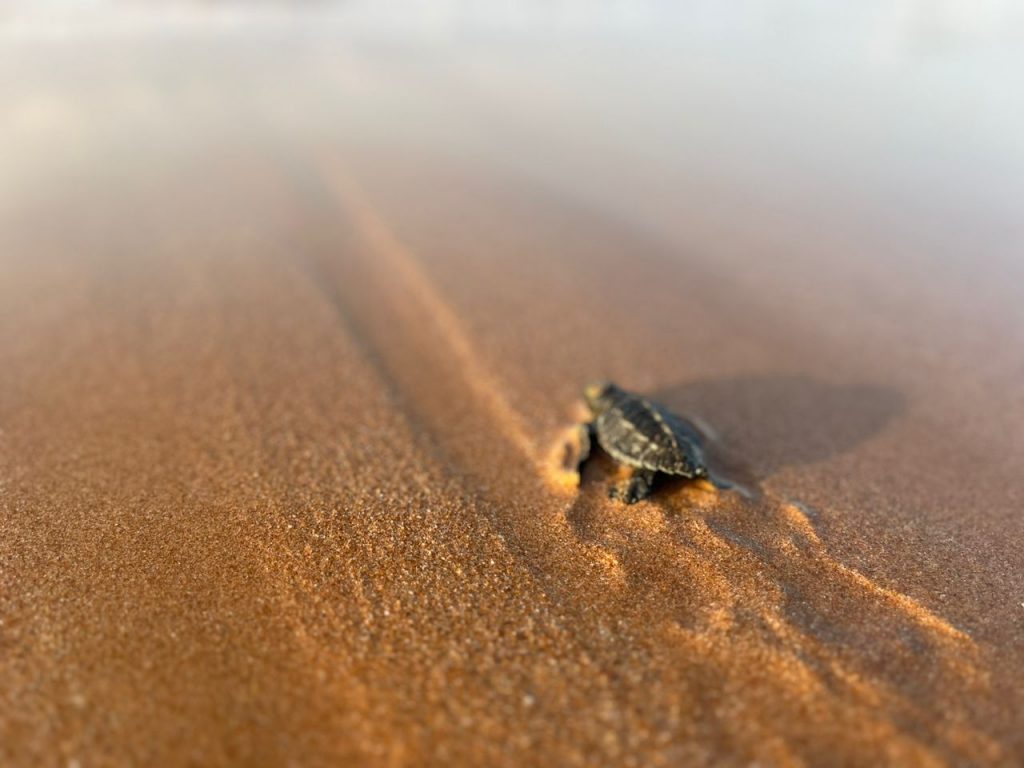
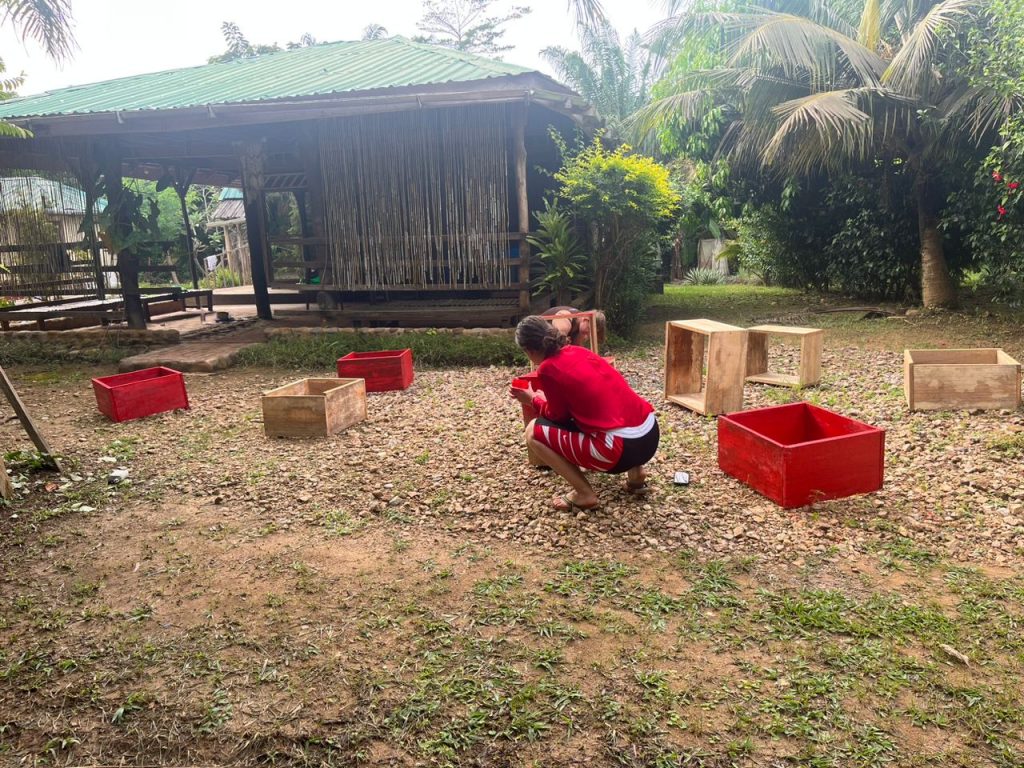
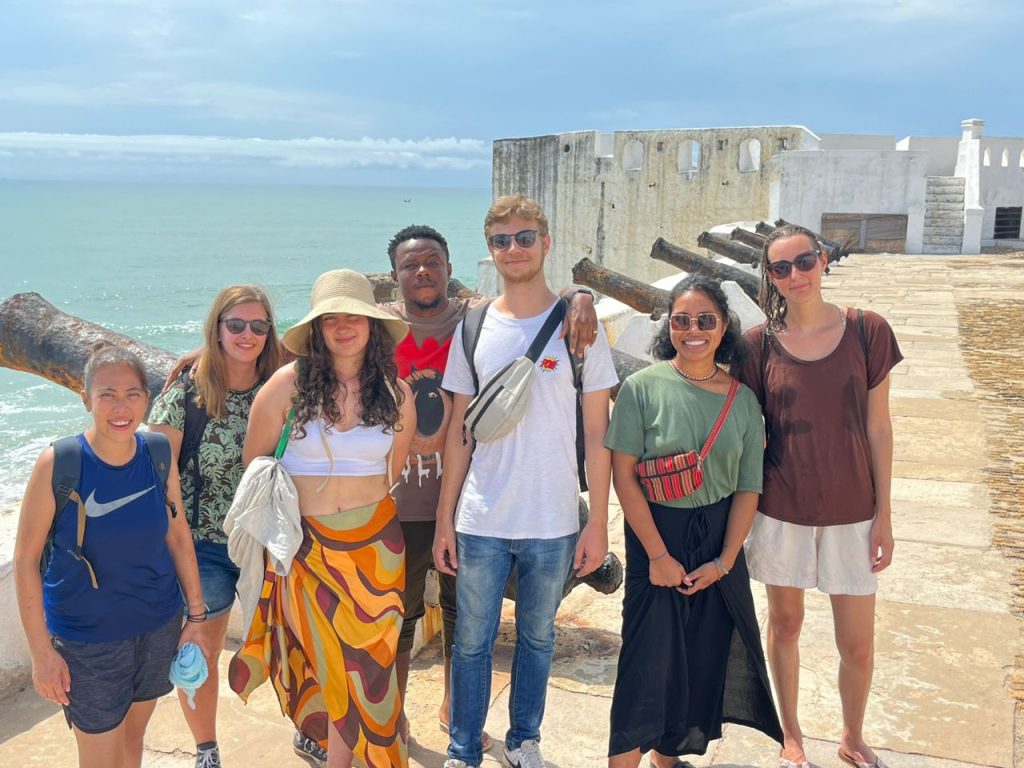
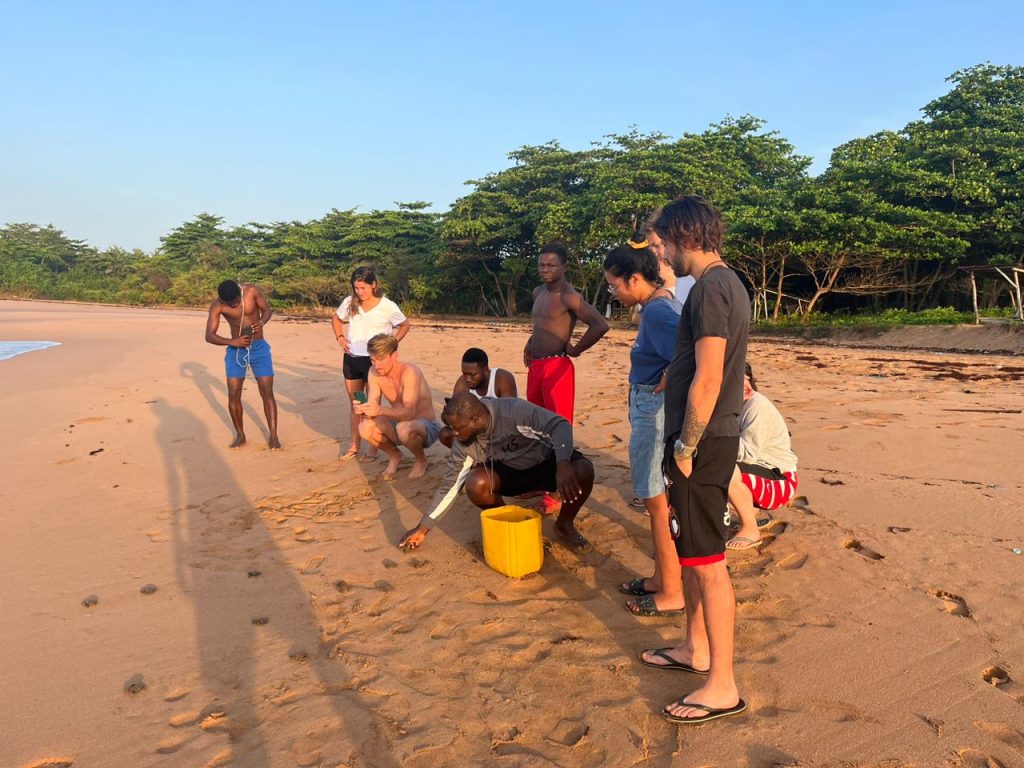
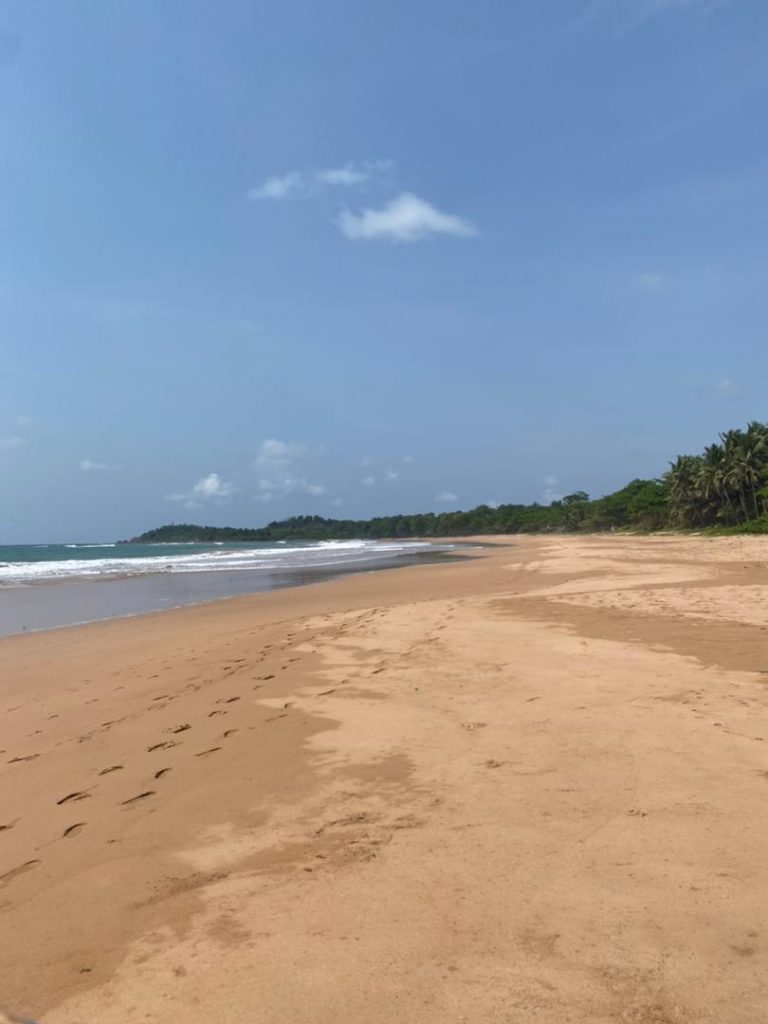
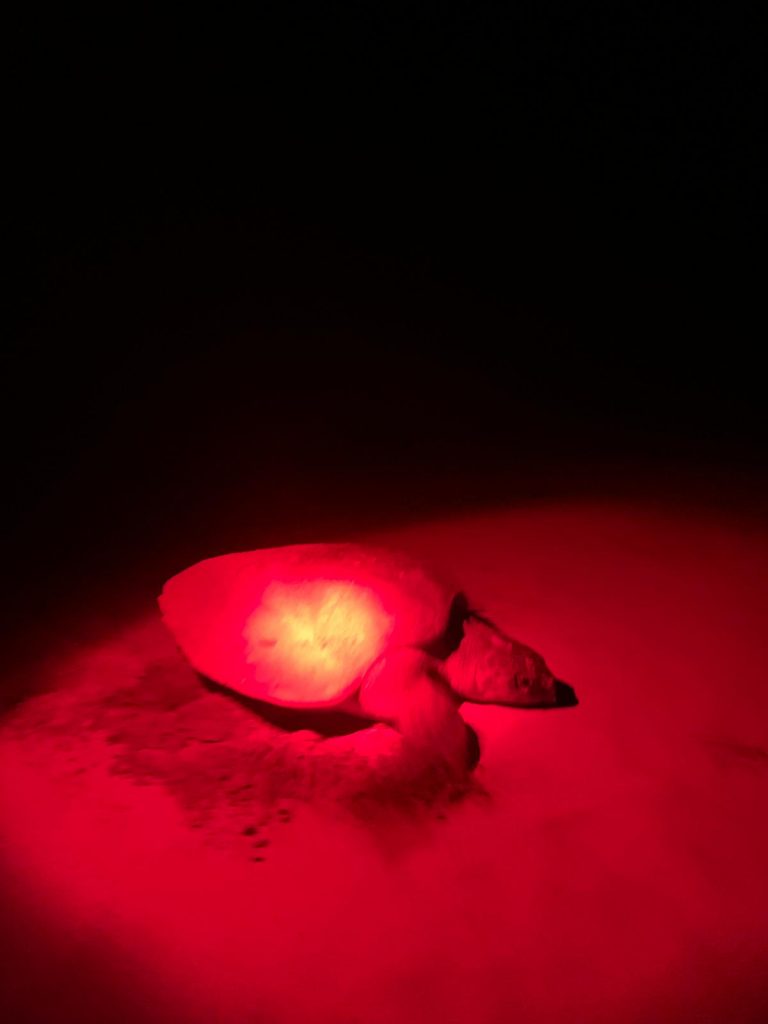
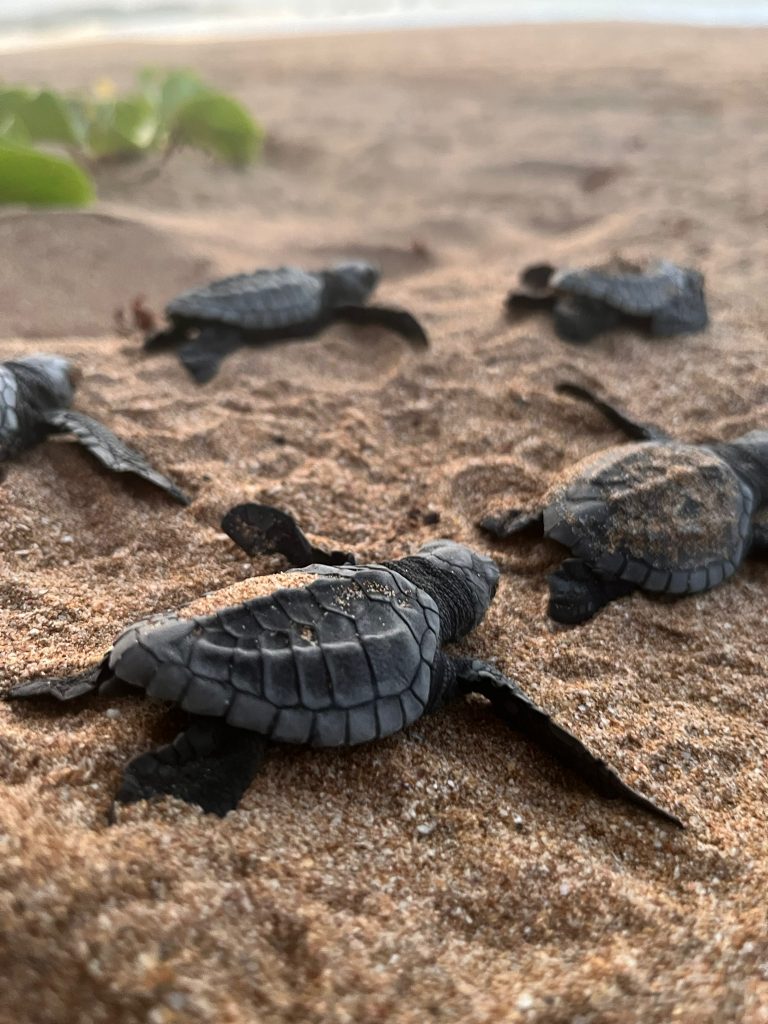
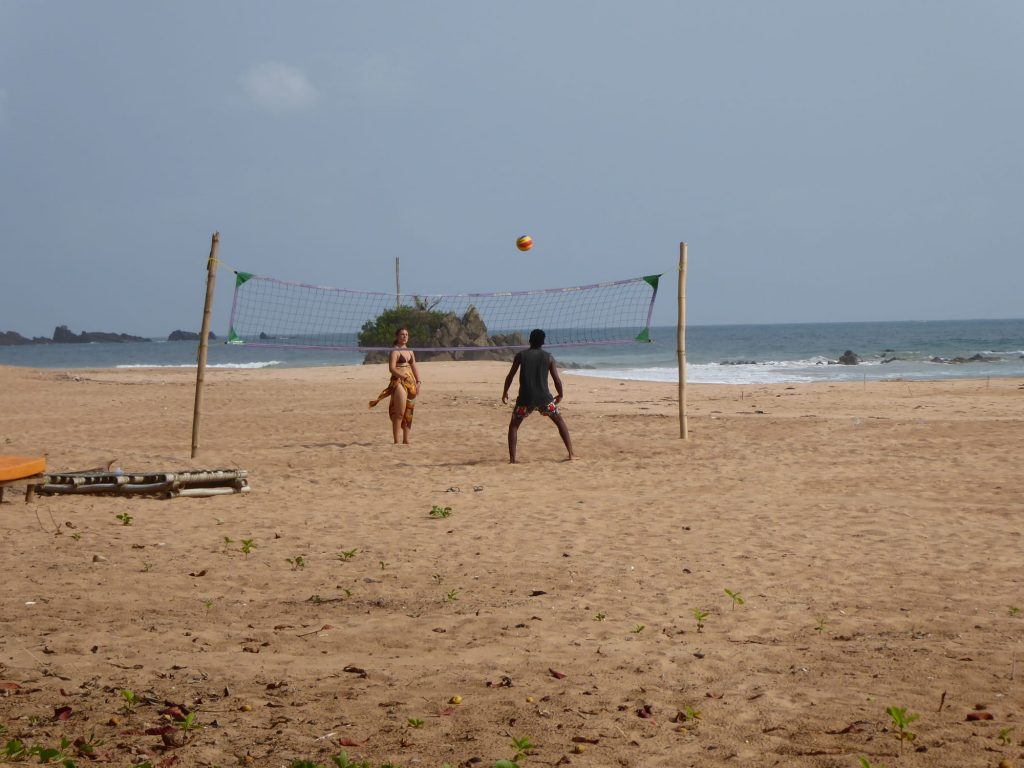
Submit your details below and a member of the team will be in touch to get you started with the application process.